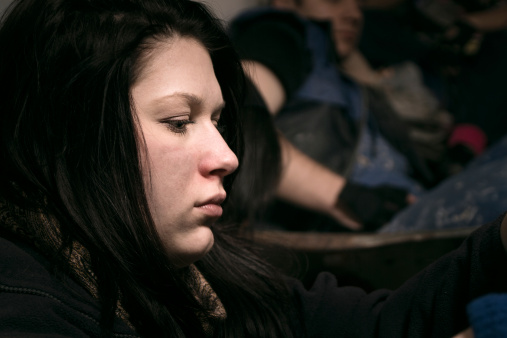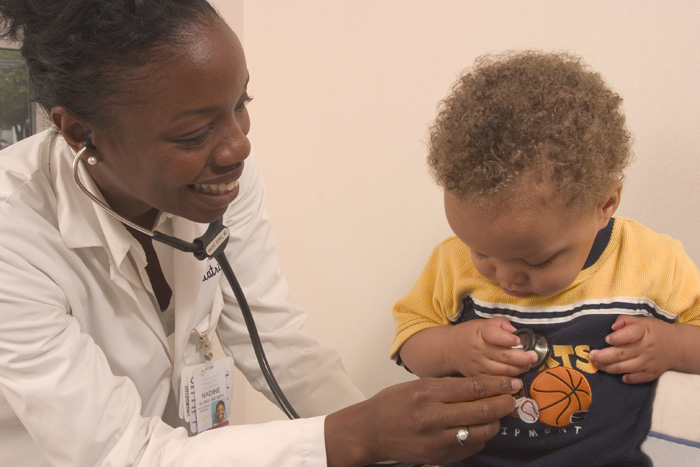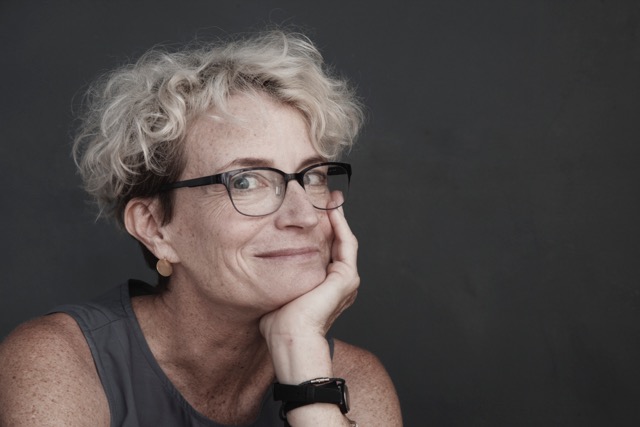Step inside. Grab something warm to drink. Have some cake. Today, we talk about death. There is perhaps no topic in American culture more taboo. We avoid it. We fear it. And it may even underlie one of our last remaining prejudices: ageism.
When Los Angeles County resident Cynthia Smith mustered the courage to leave her abusive husband, she had nowhere to go but her car. She lived out of her vehicle until she began to accrue parking tickets she couldn’t pay for—and then her car was towed. Suddenly, the former middle-class housewife found herself alone on the streets. Her only option was a homeless drop-in center on Skid Row.
As the nation observes National Minority Health Month, April will be a good time to reflect on the progress we have made addressing disparities in health. It’s also time to recommit to furthering our efforts to achieve health equity, especially for our children.
Kara Kytle is the driving force behind a smartphone app for caregivers, friends and family members called WithMe. It’s an elegant yet simple app that allows family or friends to schedule “check in” times with loved ones – typically older adults.
The enrollment process was disastrous. Yet once in, patient satisfaction levels hit 80%. That’s a quick summary of a new review of California’s efforts to steer its most expensive patients into managed care.
As always, Nadia Atef, an immigrant from Morocco now living in San Diego with her husband and two young daughters, made special foods for the holidays this year. But while she usually prepares holiday dishes from her country, this year she added a new one, spinach soup, an Egyptian delicacy. What’s more, the version Atef brought to the holiday table had been specially revamped by a group of home cooks Atef is a part of, to make the dish healthier than traditional recipes.
The squalor of LA’s skid row and the dangers it poses to human health took center stage briefly last fall when the director of one of the city’s largest homeless shelters contracted a flesh eating infection caused by e coli staph and strep that now threaten the amputation of his leg below the knee.
Fifteen years ago, Laura Wilcox, a 19-year-old college student, was killed by a man with a history of mental illness while she was working at a mental health clinic in Nevada County. After her death, Wilcox’s parents pushed for legislation they believed would prevent similar tragedies and in 2002, the California State Legislature passed that legislation, known as Laura’s Law, giving county courts the right to order assisted outpatient treatment to severely mentally ill patients at the request of a family member or other concerned party.
To be published tomorrow, This Chair Rocks: A Manifesto Against Ageism questions nearly everything we (think we) know about aging.
When Olga Santana’s 7-year-old daughter, Emma, had trouble breathing during a serious asthma attack—something that would happen about every three weeks—she would take her to the emergency room for costly treatment. The visits to the hospital stopped, however, when Santana, a mother of six, made a few changes to her home that made a big difference to her daughter’s health.










